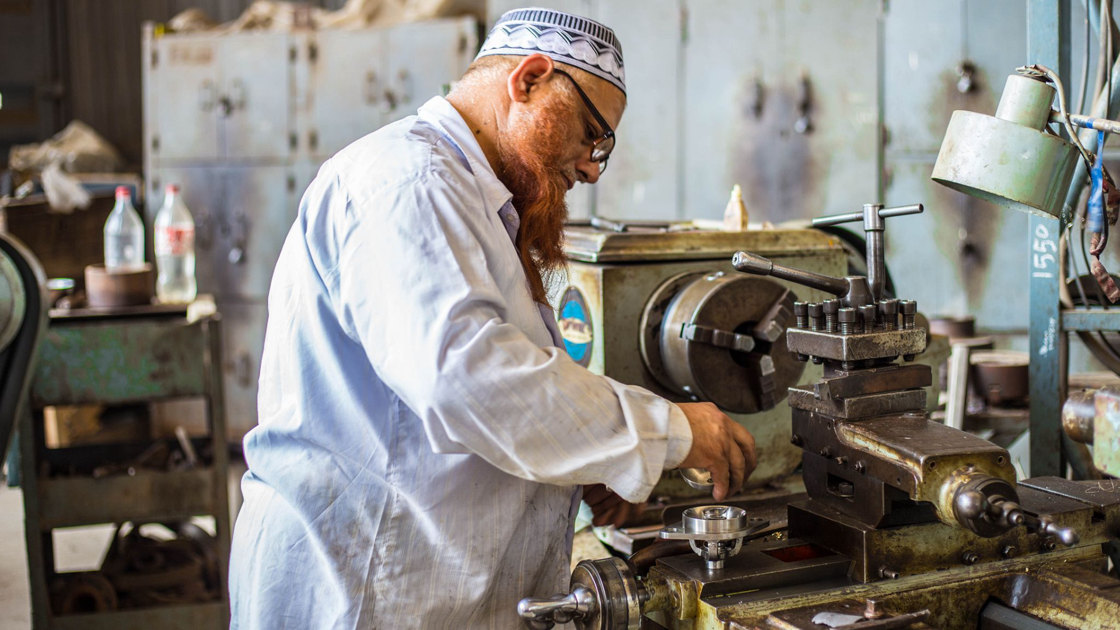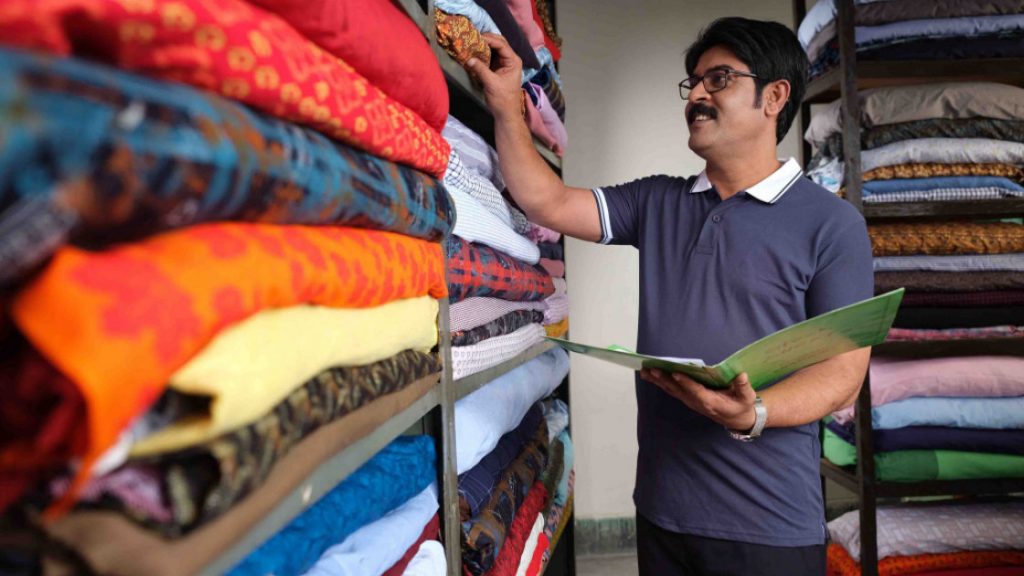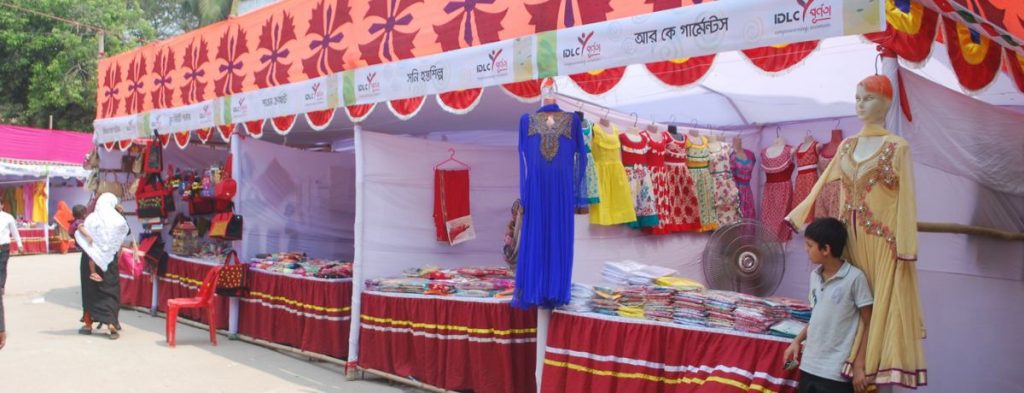
The Washington-based International Institute of Finance (IIF) ranked Bangladesh among the "fastest-growing economies" in 2021. Every year since 2009, the country has experienced a consistent growth rate of more than 6 percent. This growth has been driven by robust socio-economic policies, increased disposable income, an influx of FDI, and most importantly, the growing small and medium enterprises (SMEs).
This sector accounts for 25 percent of Bangladesh's GDP, making it the bedrock of the economy. The UN has said that these enterprises are essential to the achievement of the Sustainable Development Goals, especially eradicating poverty and generating jobs.
Several estimates suggest that the total number of SMEs is around 79 lakh, excluding cottage and micro-enterprises. According to a report published by The SME Foundation, 7.8 million people work in the sector, accounting for 40 percent of overall employment. In other news, 11% of industrial establishments and 40% of total industrial output in Bangladesh is attributed to the SME sector.
While SMEs are flourishing in a wide range of industries — from agriculture to manufacturing to service — across the country, the potential of SMEs is yet to be fully realized in Bangladesh, with Covid-19 exacerbating the situation.
SMEs usually run on tight budgets, which have made them particularly vulnerable to Covid-19. A 2020 study by the Bangladesh Institute of Development Studies (BIDS) found only 16% of SMEs continued operation during the lockdown. Almost six in ten SMEs face the threat of closure. The Asia Foundation published a report (September 2020) that revealed 75 percent of women entrepreneurs said a lack of financing made it difficult for their businesses to adapt to COVID-19.
SMEs in Bangladesh face several hurdles that hamper their growth, including financial inclusion, a lack of capital and skilled manpower, poor training supports, poor infrastructure, and bureaucratic procedures. Subsequent World Bank Enterprise surveys have revealed the greatest barriers to SME growth are the cost of finance and access to finance. A World Bank study estimates that Bangladesh has a lending gap of USD 1.28 billion, with 60% of that gap coming from women-owned SMEs.
To that end, IDLC Finance Ltd, the largest NBFI in Bangladesh, has done highly impactful work in the SME sector. The company is one of the largest lenders in the SME sector.
The company continues to support the SMEs amid the unprecedented coronavirus pandemic. As of December 2020, IDLC’s SME portfolio grew an impressive 7.4% year on year and the company disbursed loans worth $180 million. All these happened in a time when the world is going through a period of deep uncertainty due to the pandemic.

With the tagline "Small is Beautiful," IDLC Finance shifted its business focus to the SME sector 15 years ago in 2006. The operation began humbly with six employees based out of an SME branch in Bogra. As they say, the rest is history.
IDLC’s work in the sector over the years has busted many myths around financing small businesses and demonstrated how access to finance for small businesses can create jobs while keeping default loans to a minimum.
The company, over years, has improved its SME product. Today, IDLC’s SME product is thus constructed with several different packages designed according to the needs of clients. Up to BDT 5 crore loan can be availed through SME Term Loan and qualified entrepreneurs can access collateral-free loans worth up to BDT 35 lakhs. Seasonal SME loan is reconstructed for the type of businesses that experience seasonal sales or revenue turnover.
The Abashon financing plan is designed for enterprises that require housing space and shelter for their employees. Similarly, businesses that require their fleet of vehicles can apply for Commercial Vehicle Financing. To accelerate the startup ecosystem of Bangladesh, IDLC has designed ‘Udbhabon’ and ‘Startup Loan’ for infant businesses and novice entrepreneurs.
Furthermore, IDLC offers an exclusive financing plan for women entrepreneurs called ‘Purnota.’ The company today has a network of 28 SME branches across the country and SME contributes 37% of IDLC’s total loan portfolio and has maintained an excellent track record of below 3% non-performing loans (NPL) throughout the last 15 years when the overall rate of bad loans in the banking sector was above 10%.
IDLC’s work in supporting the SME sector in the country has yielded an enormous impact on employment generation and economic development in the country.
A joint study by the Policy Research Institute (PRI) of Bangladesh and IDLC titled “Access to Finance for SME & Impact on Job Creation: Empirical Evidence based on IDLC Finance” offers a fascinating insight into the transformative power of access to finance for small businesses in Bangladesh.
The survey, conducted from October 2019 to February 2020, found over 100% growth in employment generation among IDLC assisted SMEs when you consider the time from inception until 2019.
Further, female-owned sample companies created significantly more jobs than their male counterparts - almost 40.5 percentage points more than the overall increase suggested by the survey.
The study also found that the largest number of jobs were created in the service (174,2%) and manufacturing (131%) sectors (from inception to 2019), a finding that substantiates the conventional wisdom that manufacturing and service sectors create more jobs.
Similarly, the largest growth was observed in salaried jobs — 134% growth over the entire period (i.e. from inception to 2019), reflecting that small enterprises are gradually shifting from informal to formal sectors. Most of the employment was created in firms with smaller investments ranging up to Tk 100 million.
These findings could be directional and indicative of where we should intervene and pay attention to.

While women are trying to create a place for themselves in the business sector, the pool is still awfully small - only 22 percent of Bangladesh's SMEs are owned or led by women. Banks have disregarded women entrepreneurs for a considerable period. IDLC began lending to women entrepreneurs through its SME loan programs in 2006.
In 2015, the company launched Purnota, a tailored product for Women SME entrepreneurs, which was one of the first financial services for women entrepreneurs in Bangladesh. Purnota provides both financial services and non-financial business-building services such as market access, business management, skill development, vocational training, etc. to women entrepreneurs.
Purnota loans start at BDT 2 lakhs, and qualified women entrepreneurs can access mortgage-free loans worth up to BDT 35 lakhs. If an entrepreneur meets the standards and submits a comprehensive application, the processing time for Purnota loans ranges from one week to 14 days maximum.
As of Dec '2020, IDLC Purnota has supported some 5312 women entrepreneurs and has done some BDT 16510.5 million of financing so far with an excellent 1.11% NPL ratio, one of the lowest in the market.
Purnota Fair, organized by IDLC each year, helps women entrepreneurs promote their products, build networks with other women entrepreneurs and buyers. Purnota has also been helping its clients connect with government-initiated EkShop -AnondoMela and other ecommerce platforms.
To assist female entrepreneurs in business registration, IDLC has introduced facilitation support under Purnota. Female founders can get this support from 28 SME branches of IDLC across the country.
Last year, IDLC collaborated with iDE to create awareness among women SMEs about low-cost financing schemes and to help them understand how banks and NBFIs assess a business's creditworthiness.
Purnota distinguishes itself from its contemporaries in the market by continuing to reach out to and serve underrepresented female founders in the most remote parts of the country.
Like in most other nations, the outbreak of the COVID-19 pandemic was unprecedented and shook the Bangladeshi economy. Small and medium enterprises have been hit the hardest by the Coronavirus pandemic. Many businesses remained closed due to lockdowns. As the pandemic cuts into the income of working-class people, the overall demand has plummeted causing a decline in business.
Throughout the pandemic, IDLC has taken a multidisciplinary approach to support SMEs - providing both financial and non-financial assistance.
The NBFI sector was allotted around BDT 600Cr as part of the government-subsidized pandemic stimulus package. Bangladesh Bank assigned more than half of that disbursement target to IDLC last year. IDLC’s SME team disbursed the entire amount within 5 months.
The company has disbursed another BDT 30Cr fund from the SME Foundation to rural SME entrepreneurs in particular. The fund has proven to be useful for rural SMEs. Women entrepreneurs also received priority in all these initiatives — 19% of the fund went to the women entrepreneurs according to the policy guideline from the Bangladesh Bank.
Towards the end of 2020, IDLC provided training to over 800 small entrepreneurs from South and North Bengal in collaboration with SME Foundation and iDE Global. The company plans to continue to collaborate with SME Foundation to support SMEs across sectors.
A cornered SME sector can turn out to be the weak link in Bangladesh's economic recovery and growth ambitions, after all, small businesses form the bedrock of everyday economic activities. The Bangladesh Government has taken several initiatives to empower SMEs over the years. Experts suggest the government should support SMEs more because SMEs are more impactful and reliable.
Moratorium on loan payments, from January 2020 to August 2021 extended by the central bank, is expected to help clients recuperate amidst the lockdown. However, the end of the loan moratorium might result in an escalation in the number of defaulted loans for NBFIs like IDLC. So IDLC is on alert to ensure efficient collection measures to curb the escalation of defaulted loans after the end of the loan moratorium while ensuring a healthy institution-customer relationship.
Today, the challenges SMEs face amid a global pandemic are complex and multidimensional. It demands a comprehensive response. The approach IDLC has taken over the years offers both inspiration for and insight into designing effective strategies for empowering SMEs in Bangladesh by improving access to finance, market, and opportunities so that SMEs can see their full potential.

